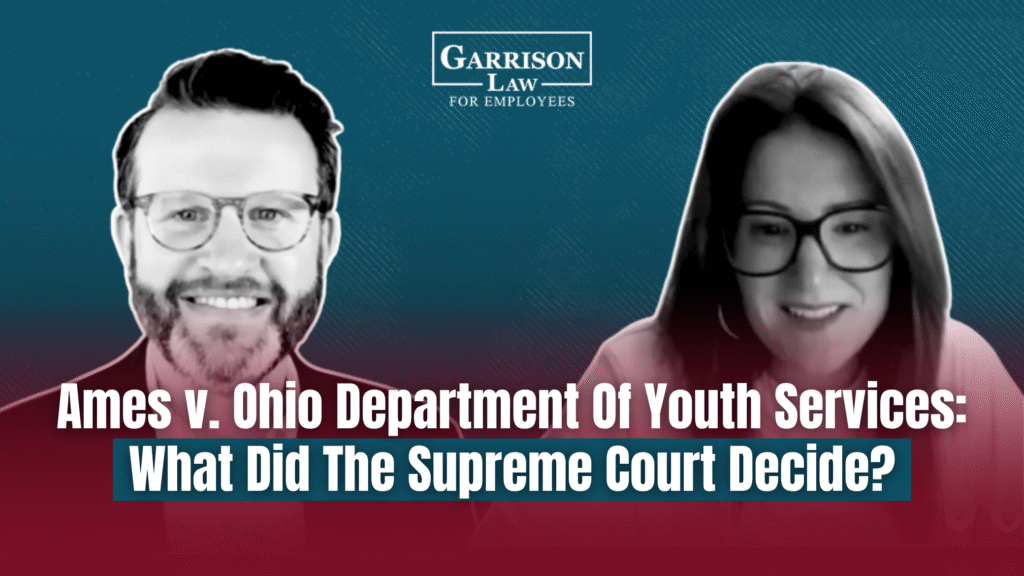Amanda DeMatteis: Hi, Josh.
Josh Goodbaum: Hi, Amanda. What are we talking about today?
DeMatteis: I thought we would talk about a new Supreme Court decision. For reference, we’re doing this video in June of 2025. The Supreme Court has been busy, and just recently, they issued an opinion that affects employment law and employment lawyers – specifically, in discrimination cases. What can you tell us?
Goodbaum: Fair warning, Amanda: This video is more from employment lawyers than it is for normal people.
The Supreme Court case is called Ames v. Ohio Department of Youth Services, and it came down on June 5, 2025. It’s a so-called reverse discrimination case. It involves a straight female employee who says that she was discriminated against because she’s straight in favor of people who are LGBTQ.
The claim of discrimination lost in the District Court at the first step of the McDonnell Douglas framework. The District Court concluded that the employee (the plaintiff) could not state a prima facie case of discrimination under the relevant test, because the Sixth Circuit (where that district court is) requires majority group plaintiffs to show, in addition to a normal prima facie case, that there are “background circumstances to support the suspicion that the defendant is that unusual employer who discriminates against the majority.”
Ms. Ames challenged that background circumstances rule, and the Supreme Court, in a unanimous decision, said the background circumstances rule is not consistent with Title VII. The Court held that the McDonnell Douglas test for whether an employee-plaintiff can survive summary judgment applies the same whether the plaintiff is a member of a minority group or a majority group. Discrimination is discrimination. It is based on the individual’s characteristics and not whether the plaintiff is a member of a majority or a minority group.
Beyond the specific holding, it’s important to know two things here.
First, in the Second Circuit, where we are – that’s Connecticut, New York, and Vermont – the background circumstances rule wasn’t a rule. It was a rule in other circuits, but not here, so Ames doesn’t change anything about the Second Circuit’s analysis of discrimination cases or so-called reverse discrimination cases.
Second, Ames had a concurrence from Justice Thomas, joined by Justice Gorsuch, that expressed real skepticism about the McDonnell Douglas test overall and suggested that, in the appropriate case, they would be willing to get rid of McDonnell Douglas. Now, so far, that approach has only got two supporters, which means there’s seven justices who presumably don’t support it.
Still, it’s something to keep in mind: every time the Supreme Court deals with a McDonnell Douglas case, it is possible that they might reconsider whether the McDonnell Douglas framework continues to apply to summary judgment. Remember, that’s because McDonnell Douglas is a judge-made burden-shifting framework. It is not anywhere in Title VII or any other statute that was passed by Congress or, for that matter, in the Connecticut statutes that were passed by the Connecticut General Assembly.
So, we’ll continue to keep our eyes on that.
For now, though, for Connecticut employment lawyers, Ames is interesting but doesn’t change anything about what we do on the ground.
DeMatteis: Thank you so much for that analysis, Josh. Interesting how much employment law changes, and we appreciate you keeping us informed.
Thank you so much for watching, and we’ll see you next time.

